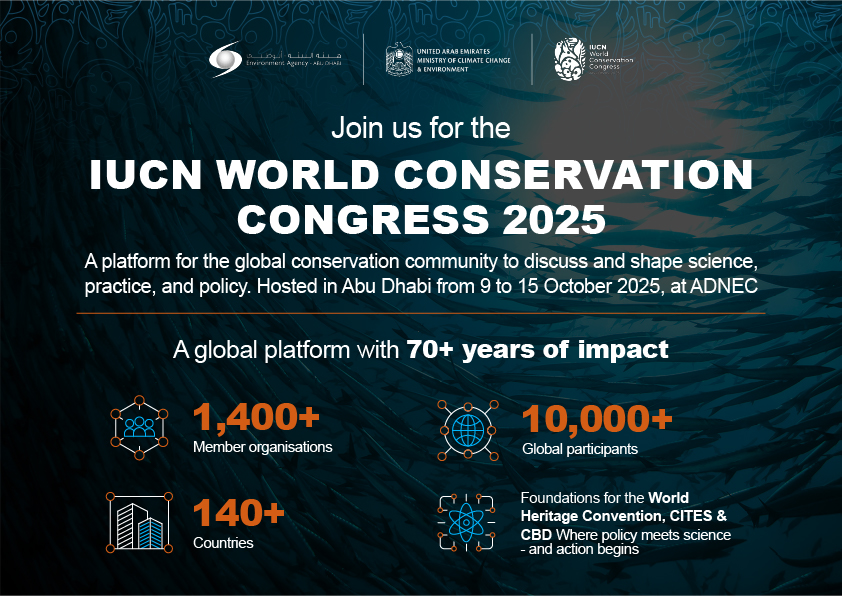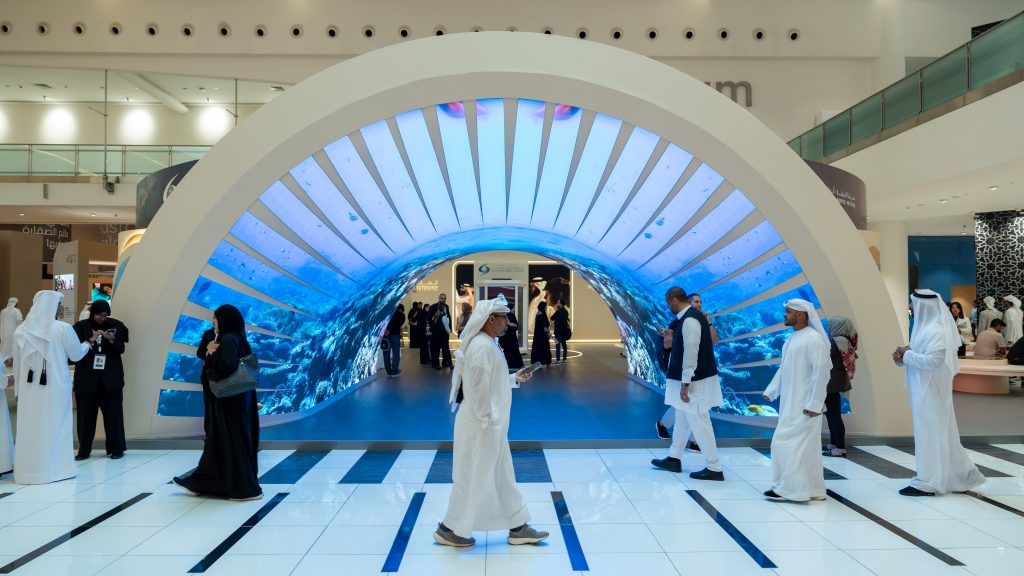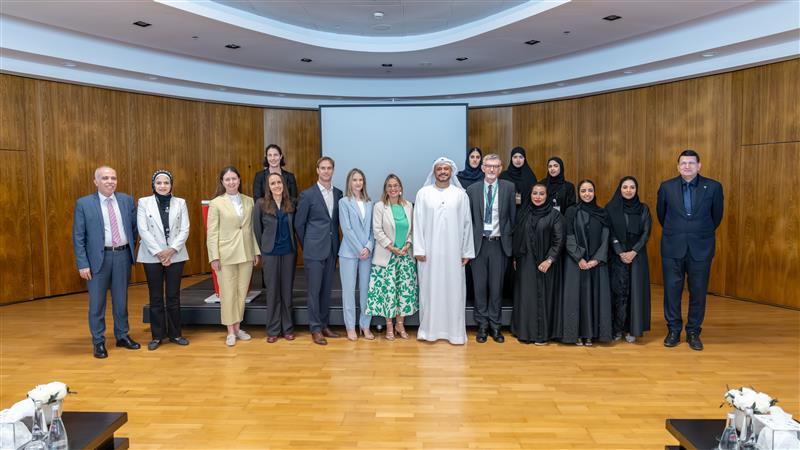



We were delighted to welcome our mother to the EAD stand, where their passion for the environment and curiosity for modern technologies inspired us all at ADIHEX 2025


The Environment Agency – Abu Dhabi (EAD) is set to welcome visitors to the Abu Dhabi International Hunting and Equestrian Exhibition (ADIHEX) 2025 with a stand designed to inspire and spark curiosity. Located in the Atrium, from 30th August to 7th September, the exhibit fuses cutting-edge technology, immersive storytelling and authentic cultural heritage. This unique mix of modern innovation and authentic heritage will give visitors an immersive glimpse into the emirate’s natural treasures. The centrepiece of the stand will be a tunnel experience showcasing Abu Dhabi’s biodiversity ecosystems, complemented by EAD’s engaging avatar, Suhail. This AI-powered virtual ambassador will inform visitors about EAD and the environment of Abu Dhabi. From the moment visitors enter the tunnel, they will be transported into the heart of the emirate’s marine and terrestrial ecosystems, experiencing the region’s biodiversity in informative detail. Ahmed Bahroon, Executive Director of Environment Information, Science and Outreach Management Sector at EAD, said: “Our participation at ADIHEX is more than an exhibit – it is about creating a lasting impression that connects people to our shared environment and culture. This year, we are presenting our mission in a way that engages the senses and sparks curiosity, while leaving visitors eager to discover more. Every species and every tradition has a story worth telling, and we look forward to sharing some of those stories with the public.”

The Environment Agency – Abu Dhabi (EAD) has announced the results of its research collaboration with Sorbonne University Abu Dhabi, which examined residents’ behaviour in managing household waste. This partnership forms a key component of the forthcoming launch of a transformative, behavioural nudging campaign designed to reshape waste management across the emirate of Abu Dhabi. The event celebrated the culmination of the first of a two-phase programme aimed at achieving two critical environmental objectives: reducing household waste generation and increasing recycling rate by residential households. The campaign draws on deep scientific insights generated from a rigorous research project: “Sociological Insights on Household Waste in Abu Dhabi: Shaping Effective Behavioural Nudges.” The research was a collaborative effort between expert teams from EAD and Sorbonne University Abu Dhabi. The research process included a comprehensive global review of successful waste management strategies and the execution of a wide-reaching sociological study. More than 1,000 residents from diverse demographics were surveyed across all three regions of Abu Dhabi. This was further enriched by qualitative research involving focus groups comprising 59 participants from 20 nationalities, including domestic workers, women and environmental advocates. The study also resulted in the development of a comprehensive interactive map of 1,500 recycling and donation sites across the emirate, categorised by 10 waste types.

In the Year of Community, the Environment Agency – Abu Dhabi (EAD) and Emirates Nature-WWF, co-founding partners of Connect with Nature, introduced a new Work Experience initiative to prepare UAE youth for future roles in environmental conservation and sustainability. Hosted at the Plant Genetic Resource Center – which is managed by EAD and home to a cutting-edge Seed Lab and Herbarium – the Work Experience gave 20 UAE youth the opportunity to take part in national plant conservation efforts.
The experience brought together youth of different ages, backgrounds, and nationalities – including youth of determination – for two immersive cohorts of hands-on learning. Working alongside scientists and experts at the UAE Plant Genetic Resource Center for the duration of one week, participants explored native plant species and built practical skills from pressing and drying to mounting and digitizing plant samples.
In the Seed Lab, youth collected pods from native species, extracted and sorted healthy seeds, and carefully labelled and stored them for long-term storage – preserving vital genetic material for future generations. Over at the Herbarium, participants collected and pressed samples, identified species, logged data, and digitised records – helping build a growing historical archive of the UAE’s native flora.
| SU | MO | TU | WE | TH | FR | SA |
| 1 | 2 | 3 | 4 | 5 | 6 | |
| 7 | 8 | 9 | 10 | 11 | 12 | 13 |
| 14 | 15 | 16 | 17 | 18 | 19 | 20 |
| 21 | 22 | 23 | 24 | 25 | 26 | 27 |
| 28 | 29 | 30 | ||||
An overview of EAD’s participation at ADIHEX 2025
As part of global efforts to protect biodiversity and promote sustainability, the IUCN World Conservation Congress will be held in Abu Dhabi from 9 to 15 October. This event will bring together leaders, experts, and decision-makers in nature conservation from governments and communities, united in their mission to safeguard our planet and its species.

